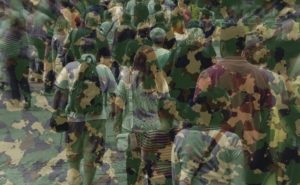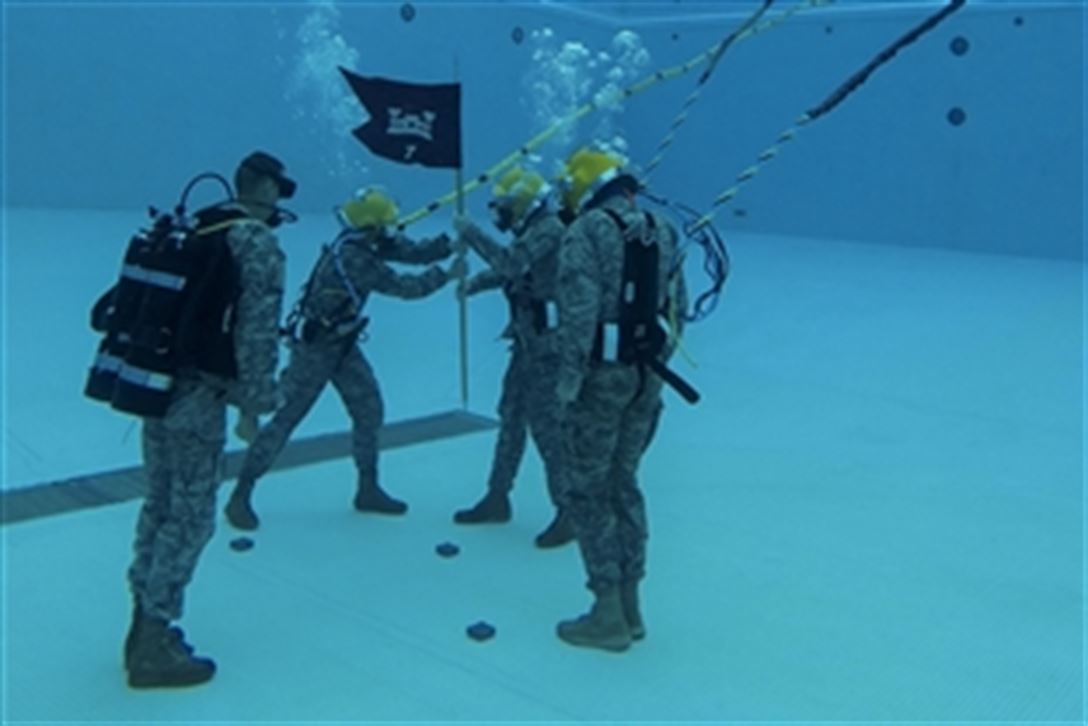
As I was on my way to the airport recently, I looked out the window and was instantly transported to a moment seen years ago. I’m not talking about a flashback but a faint temporary double vision, a memory of the past overlaid on the reality of the present.
In the distance, past a wide field surrounding the airport, was a line of low industrial buildings that surround many American airports today. The morning sky was grey, threatening a storm later or maybe the remnant of a storm past. In the near distance, just over the line of industrial buildings, was a tightly clenched fist of black smoke. A fire or some other calamity, perhaps, or the sign of the exhaust of a huge piece of heavy machinery starting up. The driver of our cab, and the other passengers in the back, didn’t think twice, didn’t comment or even interrupt their conversation.
I was instantly reminded of an incident in June of 2009, while in Jalalabad Air Field in Regional Command East, Afghanistan; in my memory, that tight fist of black smoke was the remnant of a controlled detonation of a recently discovered cache of unauthorized explosives and munitions outside the base. When a pile of explosives is located, military specialists usually use their own explosives to destroy the find, in what is known as a “controlled det.” As a matter of fact, as I looked over to my right and saw the cloud, that exact phrase leapt into my mind: Controlled Det.
Everyone has their own lived experience that they bring with them to any situation. Our childhood influences our values. Our past failures induce our future fears. Our successes give confidence.
Military veterans, whether they have deployed to combat or not, have their experiences overlay the present. While some of it has to do with sights or sounds that bring about an automatic physical response, it also has to do with triggers of memory or habitual modes of thought that lead to repeated behaviors. I didn’t experience any type of automatic fear response when I saw that black smoke: my heart rate didn’t rise, I didn’t become short of breath. My muscles didn’t clinch and my hair didn’t stand on end…but I can almost guarantee that I was the only one of the four of us that had that thought when I saw that smoke.
The feeling of seeing the world through a Veteran filter continued for the rest of the morning. Patience at the hurry-up-and-wait security lines, not an issue because of frequent in-and-out of airports while in the military caused me to pad my timeline. My bemusement at the staffer behind the ticket counter who seemed, inexplicably, to have never seen a military retiree ID card and brightly asked me if I were in the Marines, despite the U.S. Army pin clearly on my lapel.
A conversation I had with a young Soldier going through the airport on his way home on leave to be there in time to see the birth of his daughter. He was very respectful and polite (a “public persona” that is often used by veterans and service members, quite different from who we are around our buddies), and who was almost ashamed to explain that he was on his way home from Kuwait, but was not able to deploy to Iraq or Afghanistan. We talked about his uncles who had deployed to combat, who had told him that it was “lots of fun” and his current leaders who often talk about “the good old deployments.” I could see the respect he had on his face for his uncles and his leaders, and sense his regret at not being able to join them…and absolutely relate, having once been there myself. I did hand him my business card, which he took politely, but also confusedly…what would he do with a business card? Something like that could be as unfamiliar to a young Soldier as an entrenching tool or a P38 is to someone who has never served.
Even airplanes, the act of travelling, remind me of flights in the past: freedom birds away from overseas deployments, trans-atlantic flights back and forth from tours in Germany. Airplanes that took off with me in them, and landed without me because I jumped out of them halfway through. A rich, varied, jumbled group of memories obtained from decades in the military. Sometimes memories will be recalled deliberately, taken from a stockpile of stories that never seem to wear out (for us at least) and sometimes memories that pop up out of nowhere like a sudden thunderstorm on a later summer afternoon.
The view from the veteran filter is often helpful for us. Many veterans I know are creative problem solvers who know how to do much with little. If fully aware of our capabilities, we can take advantage of our varied experiences and lend a different perspective on a situation. We can weigh consequences of our decisions fairly rapidly, if not always accurately, because the consequences of our decisions while we were in the military were often significant, and we understood the magnitude of success and failure.
Mostly, I feel, our capacity for endurance is greater. Once you’ve been through a firestorm, a warm day doesn’t bother you. Everyone’s reaction to stressful experiences is subjective; if I were to ask you to rate your level of anger on a scale from one to ten, the 10 on your scale would necessarily need to be the angriest you’ve ever been. Same with fear. Joy, even. Your maximum level of fear, however, may only be at a five on my own personal subjective scale, or vice versa based on your lived experience. For me, viewing life through my veteran filter helps to calm me, as I think to myself, “At least…” As bad as this is, at least it’s not combat. As boring as this is, at least it’s not the sheer utter boredom of being stuck on an outpost with nothing but a pack of cards.
We each have filters that we view the world through. For veterans, that filter is just a little more…interesting.



